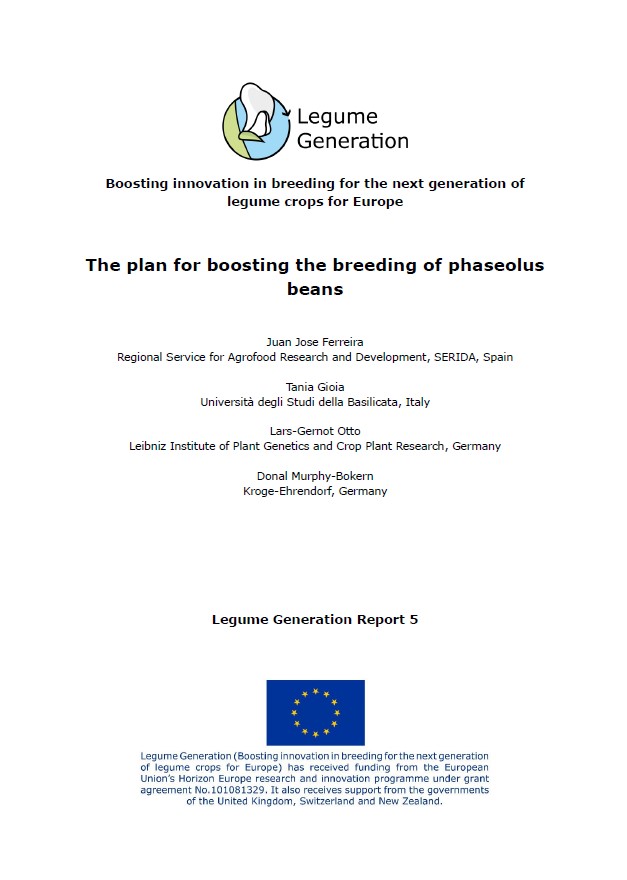Legume Generation Report 5
Juan Jose Ferreira, Tania Gioia, Lars-Gernot Otto and Donal Murphy-Bokern
Common bean yield is affected by many factors, including diseases, tolerance to abiotic stress, growth habits, seed phenotype, adaptation to specific climatic conditions, and adaptation to mechanisation. In addition, factors such as adaptation to organic farming systems, adaptation to processing, consumer preferences, quality traits, and chemical composition can impact bean crop expansion. Many of these characteristics can be improved by plant breeding methods.
Our project is structured and focused to directly support our breeding partners and associates as risk-taking innovators. A core principle in plant breeding is a species-specific entrepreneurial activity. Boosting should be a species-specific effort. Consequently, our six species-oriented breeder-led innovation communities (ICs) link practical breeding with the supporting research-base in a transdisciplinary platform. This operational framework enables each of the six ICs to harness the relevant science base provided by six cross-cutting science-support activities. This combines innovation focus on individual species/species groups in each IC with coherence and synergies across the project. All six ICs innovate up to the point where newly-bred germplasm and tools are demonstrated on farm at technology readiness level 7.
The Bean Innovative Community (BIC) is a group of researchers and technologists committed to promoting the improvement of these species. The BIC is made up of researchers with different backgrounds who carry out their work in public institutions and private seed companies. The BIC includes breeders, agronomists, phytopathologists, geneticists, data analysis and specialists in plant genetic resources.

